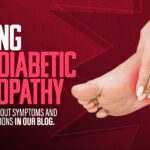In today’s society, the pursuit of a slimmer physique has become almost synonymous with the desire to be healthy. However, it is important to understand that the path to weight loss can sometimes lead to a dangerous territory known as eating disorders. The link between weight loss and eating disorders is a complex and delicate one, where individuals striving for a healthier body can inadvertently find themselves trapped in a cycle of restrictive eating and harmful behaviors. In this article, we will explore the risk of developing eating disorders while trying to lose weight and shed light on the importance of maintaining a balanced approach to achieving a healthier lifestyle.
In This Article
ToggleUnderstanding eating disorders
Eating disorders are serious mental health conditions that are characterized by abnormal eating habits and a distorted perception of body image. There are several different types of eating disorders, including anorexia nervosa, bulimia nervosa, and binge eating disorder. Each type has its own set of symptoms and consequences.
Different types of eating disorders
Anorexia nervosa is characterized by an intense fear of gaining weight and a restrictive eating pattern that leads to severe weight loss. Individuals with anorexia often have a distorted body image, seeing themselves as overweight even when they are dangerously underweight.
Bulimia nervosa involves episodes of binge eating followed by compensatory behaviors such as self-induced vomiting or excessive exercise. People with bulimia often have a tremendous fear of gaining weight and may engage in secretive behaviors to hide their disorder.
Binge eating disorder is characterized by recurrent episodes of eating large quantities of food, typically in a short amount of time, accompanied by feelings of shame or guilt. Unlike bulimia, individuals with binge eating disorder do not engage in compensatory behaviors. This can lead to significant weight gain, which can further exacerbate the disorder.
Causes of eating disorders
The exact causes of eating disorders are not fully understood, but they are believed to be the result of a combination of genetic, biological, environmental, and psychological factors.
There is evidence to suggest that certain genetic factors may predispose individuals to develop eating disorders. Additionally, imbalances in brain chemicals, such as serotonin and dopamine, may contribute to the development of these disorders.
Environmental factors, such as societal pressure to achieve a certain body type or cultural emphasis on thinness, can also play a role in the development of eating disorders. Traumatic events, such as physical or sexual abuse, can also increase the risk.
Psychological factors, such as low self-esteem, perfectionism, and a tendency towards anxiety or depression, can contribute to the development of eating disorders as well.
Risk factors for developing eating disorders
While anyone can develop an eating disorder, certain factors may increase an individual’s risk. These risk factors include:
- Gender: Eating disorders are more common in females, although they can occur in males as well.
- Age: Eating disorders often begin in adolescence or young adulthood, although they can also develop at other stages of life.
- Family history: Having a close family member with an eating disorder increases the risk of developing one.
- Personality traits: People with certain personality traits, such as being perfectionistic or overly concerned with body image, may be more susceptible to developing an eating disorder.
- Participation in activities that emphasize weight or appearance, such as ballet or modeling.
It’s important to note that having one or more of these risk factors does not guarantee that an individual will develop an eating disorder. However, being aware of these factors can help individuals and their loved ones recognize the signs and take appropriate action if necessary.
Weight loss and its connection to eating disorders
While weight loss can be a healthy goal for many individuals, it can also trigger or exacerbate disordered eating patterns. There are several factors that contribute to the link between weight loss and eating disorders.
Perception of weight and body image
In our society, there is a pervasive emphasis on thinness as the ideal body type. This can lead individuals to believe that they must lose weight in order to be accepted or loved. For individuals who already have an unhealthy relationship with food and body image, this pressure can be particularly damaging and can contribute to the development of an eating disorder.
Pressure to lose weight
Factors such as social media, advertising, and the diet industry constantly bombard us with messages about the importance of being thin. This can create a sense of pressure and urgency to lose weight, which can lead individuals to engage in extreme or unhealthy behaviors in order to achieve their desired weight loss.
Dieting and restrictive eating behaviors
Many individuals turn to dieting as a means of losing weight. While some diets may be healthy and sustainable, others can be restrictive and promote unhealthy eating patterns. Restricting certain food groups, severely limiting caloric intake, or following fad diets can lead to a preoccupation with food, feelings of deprivation, and an increased risk of developing an eating disorder.

This image is property of images.pexels.com.
The impact of eating disorders on weight loss
For individuals with eating disorders, weight loss often becomes an obsession. However, the relationship between eating disorders and weight is complex and can vary depending on the type of eating disorder.
Distorted relationship with food
Eating disorders often involve a distorted relationship with food. Individuals may become fixated on calories, grams of fat, or specific food groups. This preoccupation with food can result in weight loss or gain, depending on the individual’s eating patterns and behaviors.
Over-exercise and excessive physical activity
Many individuals with eating disorders engage in excessive exercise as a means of controlling their weight. This intense physical activity can contribute to weight loss and may be coupled with restrictive eating behaviors.
Medical complications related to eating disorders
Eating disorders can have serious physical consequences, even if weight loss is achieved. The body relies on a certain number of calories and nutrients to function properly, and when these needs are not met, the body can experience a wide range of medical complications.
For example, individuals with anorexia may experience amenorrhea (the absence of menstruation), muscle weakness, electrolyte imbalances, and a weakened immune system. Bulimia can lead to dehydration, electrolyte imbalances, and damage to the teeth and esophagus. Binge eating disorder can result in obesity, high blood pressure, and cardiovascular problems.
It is essential to understand that weight loss achieved through disordered eating is not sustainable or healthy in the long term. Seeking professional help and support is crucial for both physical and mental well-being.
Recognizing the signs of an eating disorder
Recognizing the signs of an eating disorder can be challenging, as individuals with these disorders often try to hide their behaviors. However, there are certain red flags that loved ones can look out for. These include:
Changes in eating habits
Significant changes in eating habits, such as skipping meals, avoiding certain food groups, or drastically reducing portion sizes, may indicate the presence of an eating disorder. Obsession with caloric intake or excessive food rituals can also be warning signs.
Extreme weight loss or fluctuations
Rapid and significant weight loss, as well as frequent weight fluctuations, can be indicative of an eating disorder. It’s important to remember that weight loss should always be gradual and sustainable, achieved through healthy and balanced means.
Obsession with body image and weight
Constantly talking about or expressing dissatisfaction with one’s body size, shape, or weight can signal an unhealthy preoccupation with body image. Engaging in negative self-talk, consistently comparing oneself to others, and expressing extreme fear of weight gain are all signs to be aware of.

This image is property of images.pexels.com.
The role of mental health in weight loss and eating disorders
Mental health plays a significant role in both weight loss and the development of eating disorders. There are several psychological factors that can contribute to the development of these disorders.
Psychological factors contributing to eating disorders
Both underlying mental health conditions and specific psychological traits can contribute to the development of eating disorders. Conditions such as depression, anxiety disorders, and obsessive-compulsive disorder (OCD) often co-occur with eating disorders.
Additionally, personality traits such as perfectionism, low self-esteem, and a tendency towards rigidity and control can make individuals more susceptible to developing disordered eating patterns.
The importance of addressing underlying mental health issues
It is crucial to address underlying mental health issues when addressing weight loss or treating eating disorders. Without addressing these issues, individuals may struggle to make lasting changes or fully recover from their eating disorder.
Seeking support from mental health professionals, such as therapists or counselors, can be highly beneficial in addressing these underlying issues. By addressing these issues, individuals can improve their overall well-being and increase the likelihood of achieving and maintaining healthy weight loss goals.
Prevention and intervention strategies
Prevention and early intervention are key in addressing eating disorders and promoting a healthy body image. Here are some strategies that can be effective in preventing and intervening in eating disorders:
Promoting a healthy body image
Promoting a healthy body image involves challenging societal ideals, promoting diversity, and encouraging self-acceptance. It’s important to emphasize that worth and happiness are not determined solely by one’s appearance.
Encouraging balanced and intuitive eating
Rather than promoting restrictive diets or excessive focus on weight and calories, it is important to encourage balanced and intuitive eating. This involves listening to one’s body and responding to its hunger and fullness cues, rather than external rules or restrictions.
Seeking professional help and support
If you or someone you know is struggling with disordered eating or an eating disorder, it is crucial to seek professional help and support. Mental health professionals, such as therapists or counselors specializing in eating disorders, can provide guidance, support, and treatment options.
Additionally, support groups and online resources can also be helpful in connecting with others who have had similar experiences and providing a sense of community.
Treatment options for eating disorders
Treatment for eating disorders often involves a multidisciplinary approach that addresses both the physical and psychological aspects of the disorder. Here are some common treatment options:

This image is property of images.pexels.com.
Therapy and counseling
Various forms of therapy, such as cognitive-behavioral therapy (CBT) and dialectical behavior therapy (DBT), have been found to be effective in treating eating disorders. These therapies address the underlying thoughts, behaviors, and emotions that contribute to disordered eating patterns.
Medical and nutritional support
In severe cases, medical and nutritional support may be necessary to stabilize an individual’s physical health. This may include hospitalization, medical monitoring, and working with a registered dietitian to establish a healthy meal plan.
Support groups and online resources
Support groups, both in-person and online, can provide a sense of community and understanding for individuals with eating disorders. Sharing experiences, challenges, and strategies for recovery can be invaluable in the healing process.
The importance of a holistic approach
When addressing eating disorders, it is vital to take a holistic approach that considers both physical and mental well-being. Here are some key aspects of a holistic approach to recovery:
Addressing both physical and mental well-being
Recovery from an eating disorder involves addressing and healing both the physical and mental aspects of the disorder. By promoting physical health through balanced nutrition, adequate rest, and regular exercise, and addressing mental health through therapy and support, individuals can achieve holistic well-being.
Promoting self-acceptance and self-care
Recovering from an eating disorder requires cultivating self-acceptance and practicing self-care. This involves challenging negative self-talk, nurturing one’s body, engaging in activities that bring joy, and prioritizing self-compassion.
Long-term effects of eating disorders on weight and overall health
Eating disorders can have long-term effects on both weight and overall health. It’s important to be aware of these potential consequences in order to seek appropriate treatment and support.
Metabolic changes and weight management challenges
Eating disorders can result in metabolic changes that make it challenging for individuals to achieve or maintain a healthy weight. This can lead to a cycle of extreme weight loss and regain, which can further damage one’s physical and mental well-being.
Increased risk of other health complications
Eating disorders can increase the risk of developing other health complications. These can include hormonal imbalances, gastrointestinal problems, cardiovascular issues, and bone loss. Being aware of these potential consequences is important in order to prioritize both physical and mental health in recovery.
Supporting individuals in their weight loss journeys
Supporting individuals in their weight loss journeys requires a compassionate and empathetic approach. Here are some strategies for providing effective support:
Education on healthy weight loss practices
Providing accurate information on healthy weight loss practices can empower individuals to make informed decisions and promote sustainable changes. This includes emphasizing the importance of balanced nutrition, regular exercise, and self-care.
Empathy and understanding
It is crucial to approach individuals struggling with weight loss and eating disorders with empathy and understanding. Avoid judgmental or shaming language, and instead provide a safe and supportive environment where individuals can feel heard and validated.
Encouraging a positive relationship with food and body
Promote a positive relationship with food and body by discouraging diet culture and encouraging self-acceptance. Emphasize the importance of nourishing the body, rather than focusing solely on appearance or weight.
Overall, understanding the link between weight loss and eating disorders is essential in order to provide appropriate support and intervention. By addressing the underlying causes, promoting a healthy body image, and prioritizing both physical and mental well-being, we can create a more compassionate and inclusive approach to weight loss and overall health.
Related posts:
 Menopause Relief Jewelry Set for Women: Lymphatic Drainage Bracelet, Arthritis Pain Bracelet, and Rhinestone Link Bracelet – Perfect Gifts for Mom and Friend
Menopause Relief Jewelry Set for Women: Lymphatic Drainage Bracelet, Arthritis Pain Bracelet, and Rhinestone Link Bracelet – Perfect Gifts for Mom and Friend
 YUESHENGHAO 9 Inch Wheat Round Divider Plates – Durable Adult Portion Control Plates for Healthy Eating, Weight Loss, and Picky Eaters – Set of 5, Microwave and Dishwasher Safe
YUESHENGHAO 9 Inch Wheat Round Divider Plates – Durable Adult Portion Control Plates for Healthy Eating, Weight Loss, and Picky Eaters – Set of 5, Microwave and Dishwasher Safe
 Viynran Portion Control Plate: A Nutritious Solution for Balanced Eating – Ideal for Adults and Teens – Includes Melamine Dividers for Weight Management and Diabetes Control (1 Pack)
Viynran Portion Control Plate: A Nutritious Solution for Balanced Eating – Ideal for Adults and Teens – Includes Melamine Dividers for Weight Management and Diabetes Control (1 Pack)
 Understanding the Impact of Diabetes on Pregnancy: Mother and Child Concerns
Understanding the Impact of Diabetes on Pregnancy: Mother and Child Concerns
 Understanding Diabetic Neuropathy: The Hidden Danger of Nerve Damage
Understanding Diabetic Neuropathy: The Hidden Danger of Nerve Damage
 Body Measurement Journal for Women: A Comprehensive Tracker for Weight Loss and Fitness Goals – 110 Pages, 8.5″ X 11″ InchEmptyEntries, Weight Loss Progress Diary, Exercise Log, and Meal Planner – Perfect for Girls and Women
Body Measurement Journal for Women: A Comprehensive Tracker for Weight Loss and Fitness Goals – 110 Pages, 8.5″ X 11″ InchEmptyEntries, Weight Loss Progress Diary, Exercise Log, and Meal Planner – Perfect for Girls and Women











No comment yet, add your voice below!